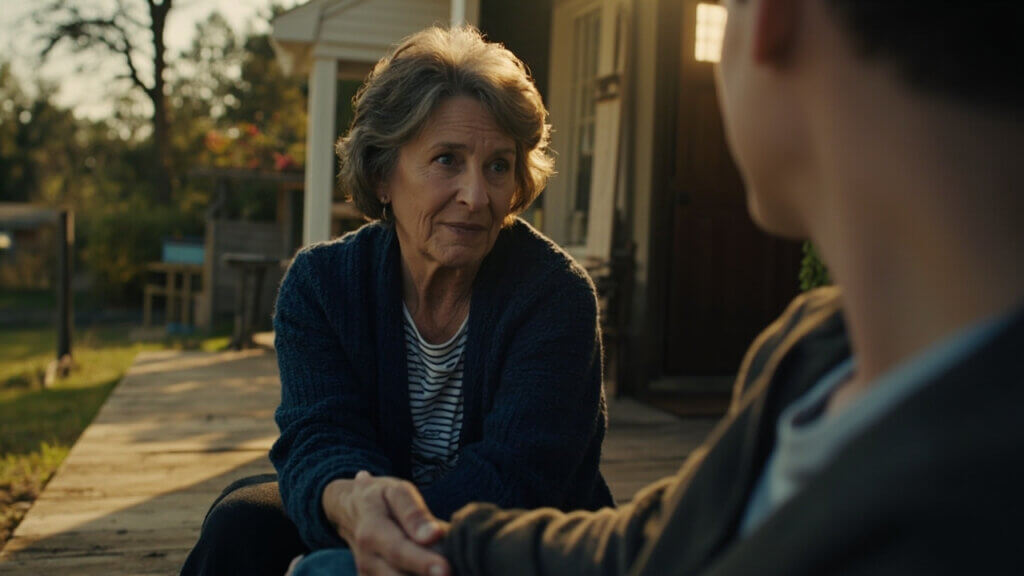Parenting doesn’t stop when your kids turn 18. In fact, some of the most emotionally complex conversations happen well into their adulthood—especially when they’re going through tough times. Whether your adult child is facing job loss, divorce, depression, or financial trouble, your words carry weight.
The challenge? Knowing how to support without overstepping.
This guide will help you navigate conversations with grown children who are struggling—what to say, what to avoid, and how to maintain a loving, respectful connection.
Why These Conversations Matter More Than Ever
Many people over 50 are surprised to find themselves back in a parenting role—not with toddlers, but with adult kids facing real-world setbacks. You might feel torn between wanting to help and wanting them to stand on their own.
These moments are pivotal. The wrong words can spark shame, conflict, or withdrawal. The right ones can help build trust, resilience, and deeper connection.
What to Say to Show Support
Here are a few phrases that provide reassurance while keeping boundaries clear:
“I’m here for you—no matter what.”
This simple line reminds them they’re not alone. It offers presence, not pressure.
“Would you like to talk about it, or do you just want me to listen?”
This gives them the choice to vent, seek advice, or say nothing at all. Listening is often more helpful than solutions.
“I trust you to figure this out, and I’ll help however I can.”
Affirming their ability to cope—while offering backup—can boost their confidence and reduce dependency.
“This must be really hard. I’m proud of how you’re handling it.”
Acknowledge the struggle, validate their feelings, and spotlight their strength.

What Not to Say (Even with Good Intentions)
Even the most loving parents can stumble into unhelpful territory. Avoid phrases like:
“Why don’t you just…”
Offering quick fixes can feel dismissive. Most adult kids aren’t looking for a fix—they’re looking for understanding.
“You never listen to my advice anyway.”
This builds distance and discouragement. It signals frustration, not support.
“When I was your age, I…”
Unless specifically asked, personal comparisons often come off as judgmental—even if you mean well.
“You brought this on yourself.”
Even if true, this leads to shame—not growth. There are kinder, more constructive ways to reflect on choices.

Balancing Help with Healthy Boundaries
Sometimes love can veer into over-helping. Here’s how to support without enabling:
Set Clear Limits
It’s okay to say, “I can help with groceries this month, but not rent,” or “We can talk Sundays, not every night.”
Avoid Guilt-Based Giving
Give from generosity, not obligation or fear. If it feels resentful, it’s probably not sustainable.
Encourage Ownership
Ask: “What’s your plan from here?” instead of offering one yourself. Let them drive their own future.

FAQs
What if my adult child won’t talk to me at all?
Give them space, but keep the door open with occasional notes like “Thinking of you—no pressure to respond.” Over time, trust can rebuild.
Is it wrong to say no to financial help?
Not at all. If helping hurts your own retirement or emotional health, it’s not wise—or truly helpful in the long run.
What if I think they need therapy or professional help?
Avoid commanding. Try: “Would you be open to talking to someone? I can help find resources if you want.” Framing it as support, not a verdict, goes further.
Final Thoughts: Connection Over Control
When adult children struggle, your instinct may be to fix or protect. But often, what they need most is calm, unconditional support—and the confidence that you believe in them.
Speak with care, listen with patience, and know that your love—quiet and steady—matters more than you think.
Next Step:
Reflect on your last few conversations with your grown child. Did you leave space for listening? Encouragement? Could one phrase be swapped for something more empowering next time?
The words you choose today can help shape their tomorrow.
